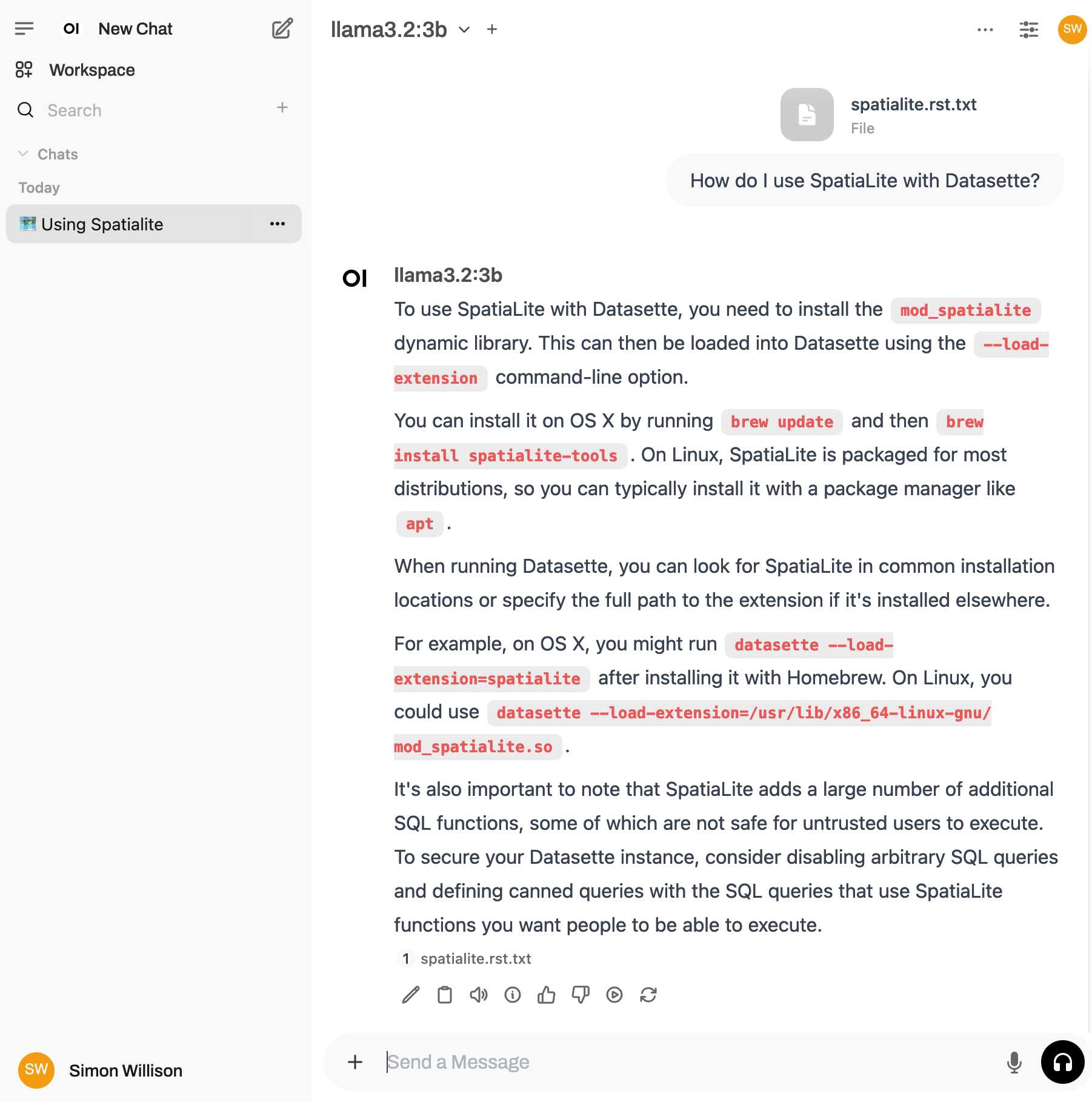Friday, 27th December 2024
Open WebUI. I tried out this open source (MIT licensed, JavaScript and Python) localhost UI for accessing LLMs today for the first time. It's very nicely done.
I ran it with uvx like this:
uvx --python 3.11 open-webui serve
On first launch it installed a bunch of dependencies and then downloaded 903MB to ~/.cache/huggingface/hub/models--sentence-transformers--all-MiniLM-L6-v2 - a copy of the all-MiniLM-L6-v2 embedding model, presumably for its RAG feature.
It then presented me with a working Llama 3.2:3b chat interface, which surprised me because I hadn't spotted it downloading that model. It turns out that was because I have Ollama running on my laptop already (with several models, including Llama 3.2:3b, already installed) - and Open WebUI automatically detected Ollama and gave me access to a list of available models.
I found a "knowledge" section and added all of the Datasette documentation (by dropping in the .rst files from the docs) - and now I can type # in chat to search for a file, add that to the context and then ask questions about it directly.
I selected the spatialite.rst.txt file, prompted it with "How do I use SpatiaLite with Datasette" and got back this:

That's honestly a very solid answer, especially considering the Llama 3.2 3B model from Ollama is just a 1.9GB file! It's impressive how well that model can handle basic Q&A and summarization against text provided to it - it somehow has a 128,000 token context size.
Open WebUI has a lot of other tricks up its sleeve: it can talk to API models such as OpenAI directly, has optional integrations with web search and custom tools and logs every interaction to a SQLite database. It also comes with extensive documentation.